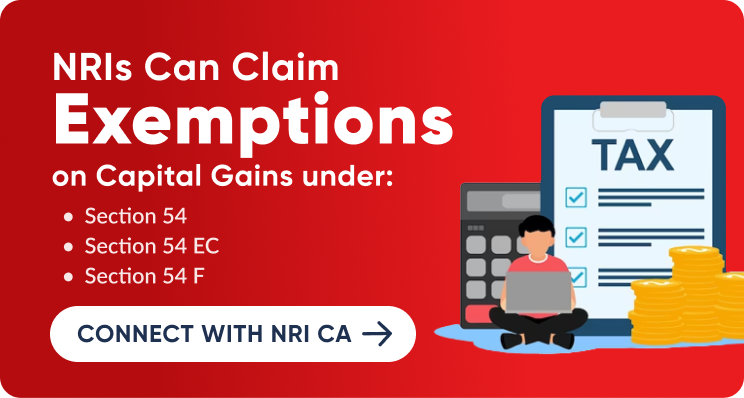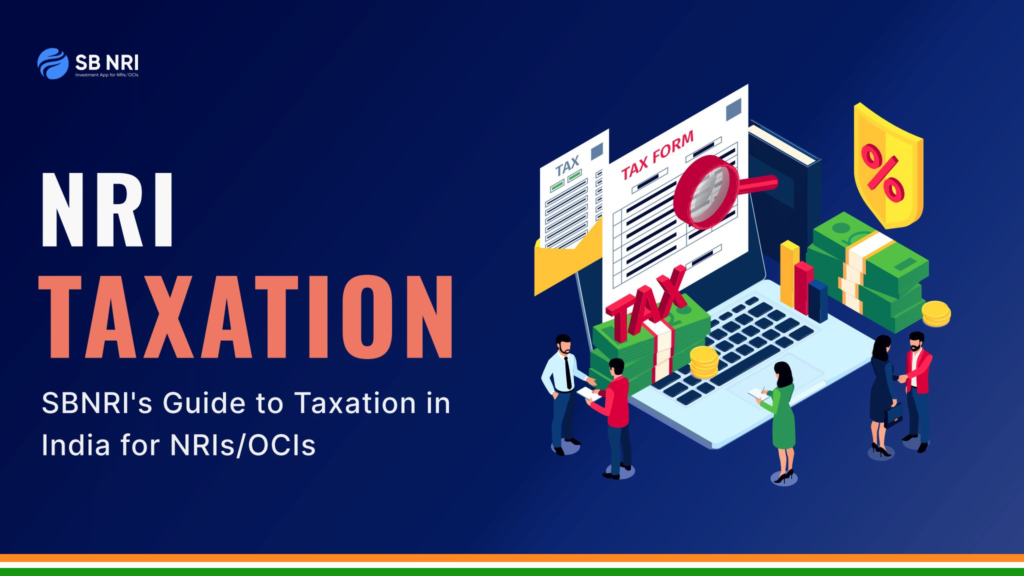Non-Resident Indians can open different types of NRI accounts in India – Non-Resident External (NRE) account, Non-Resident Ordinary (NRO) account and Foreign Currency Non-Resident (FCNR) account – to deposit their money earned within India or abroad. However, for any income earned in India, NRIs need to have an NRO account. NRIs are liable to pay taxes on income deposited in an NRO account in India. Let’s understand the tax on an NRO account.

What is an NRO Account?
An NRI can open different types of NRO accounts, like savings account, current account or NRO fixed deposit account to save income earned in India. They can open an NRO account to accumulate deposit earnings in India through dividends, pensions, salaries, rents, etc. Furthermore, NRO account holders can repatriate an amount up to USD one million each financial year for all legitimate purposes.
Is NRO Account Taxable in India?
Yes, NRO (Non-Resident Ordinary) accounts in India are subject to taxation. Interest earned on NRO account balances is taxable in India.
Tax on NRO Account
Under the provisions of the Income Tax Act of 1961, The interest income on funds in an NRO account is subject to tax deducted at source (TDS) at 30%. In addition to this, a surcharge and education cess of 4% are applied.
NRO Account Tax
Types of income where tax is applicable on an NRO account are:
- Capital gains on NRI investments in India
- Consulting fees or salary earned in India
- Rent from property owned in India
- Interest income earned from your NRO accounts/ deposits

Please note: Income deposited in your NRO account is subject to taxation under the Indian Income Tax Rules irrespective whether you work in India or overseas. The total income of an NRI is taxed as per the income tax slab applicable on their total income. NRI taxpayers can file their ITR and claim TDS deducted against the total tax payable on their aggregate income. If the TDS deducted exceeds the total tax payable by the NRI, he/she can claim a refund of the excess TDS at the time of ITR filing.
How to Save Tax on NRO Account?
- NRIs can avoid paying higher TDS in India by investing in mutual funds in India. For example, they can invest in an ELSS or tax saving mutual funds and apply for up to INR 1.5 lakh as deduction from their taxable income in India u/s 80C of the Income Tax Act. NRIs can invest in mutual funds in India via one of NRI accounts.
- NRIs can also avail tax deduction for the premiums paid towards health insurance policies under Section 80D of the IT Act.
- They can benefit from deduction of tax for the interest paid on education loans under Section 80E.
- Under Section 80G, NRIs can claim tax deduction for all donations they have made.
- NRIs can also take advantage of the NPS (National Pension System). Through NPS (government-supported pension scheme) NRIs can claim tax deductions of up to Rs. 50,000 under Section 80CCD(1B) of the Income Tax Act.
- Under Section 80TTA of the Income Tax Act, 1961, NRIs can claim a tax deduction on interest income of up to Rs. 10,000 from their NRO savings account in a financial year. This deduction is specifically applicable to the interest earned on NRO savings accounts and does not apply to interest income from NRO fixed deposits.

Relief from Double Taxation
NRIs can save tax on interest earned in an NRO account through the Double Taxation Avoidance Agreement (DTAA). As per this agreement, an NRI needs to pay tax in only one country in case of cross border transactions. This means if you have already paid taxes on your capital gains in India, you don’t have to pay tax for the same in the country of your residence. You need to furnish a Tax Residency Certificate (TRC) from your country of current residence along with Form 10F and PAN number to avail the benefit of DTAA in India.
Calculate your TDS Refund with SBNRI’s TDS Refund Calculator
A TDS refund is the process of reclaiming the excess tax deducted at source by the payer if the actual tax liability of the taxpayer is lower than the TDS deducted. This situation typically arises when the income tax calculated on the total income is less than the TDS already deducted. To claim a TDS refund, taxpayers need to file an income tax return (ITR). The Income Tax Department processes the ITR and verifies the details. If the tax department finds that the TDS paid is more than the actual tax liability, the excess amount is refunded to the taxpayer.
You can easily find out how much tax refund you can get by calculating your TDS Refund from this TDS Refund Calculator.
Access SBNRI’s Exclusive NRI Taxation Guide

NRIs and OCIs can now access SBNRI’s exclusive NRI Taxation Guide covering in-depth information about DTAA, Gift Tax, Rental Income Tax, ITR Filing, Types of ITR Forms for NRIs, Capital Gain Tax, Income Tax, and more. The report will help you understand India taxation on mutual funds, other asset classes and how you can comply with the regulations.
Access NRI Taxation report here
Contact SBNRI
There are various ways for NRIs to save income tax in India, but due to a complicated tax system and recurrent amendments, understanding tax laws can be confusing, especially for NRIs. NRIs may miss claiming deductions and other benefits. At SBNRI, we understand this struggle. You can download SBNRI App to connect with our NRI Tax Experts to know more about new TRC, TDS/ TCS rules for NRIs. You will also get end-to-end assistance related to NRI tax filing.
SBNRI will also help you get a lower TDS Certificate to reduce tax payable. You can also click on the button below to ask any questions. Visit our blog and YouTube Channel for more details.
FAQs
The interest income generated from an NRO account is taxed at a rate of 30%, along with any applicable cess and surcharge.
The income generated from an NRO account, specifically the interest earned on the account balance, is subject to income tax. The specific threshold for taxable income on an NRO account depends on the individual’s income slab and the applicable tax laws in India.
Under the provisions of the FEMA, NRIs cannot continue with resident savings account once they acquire NRI status. Failure to adhere to these guidelines can result in penalties equivalent to three times the value of your existing resident savings account, or Rs 2 lakh if the amount cannot be determined. Additionally, an extra penalty of Rs 5,000 is imposed on a daily basis starting from the date of intervention until the penalty is paid off.



